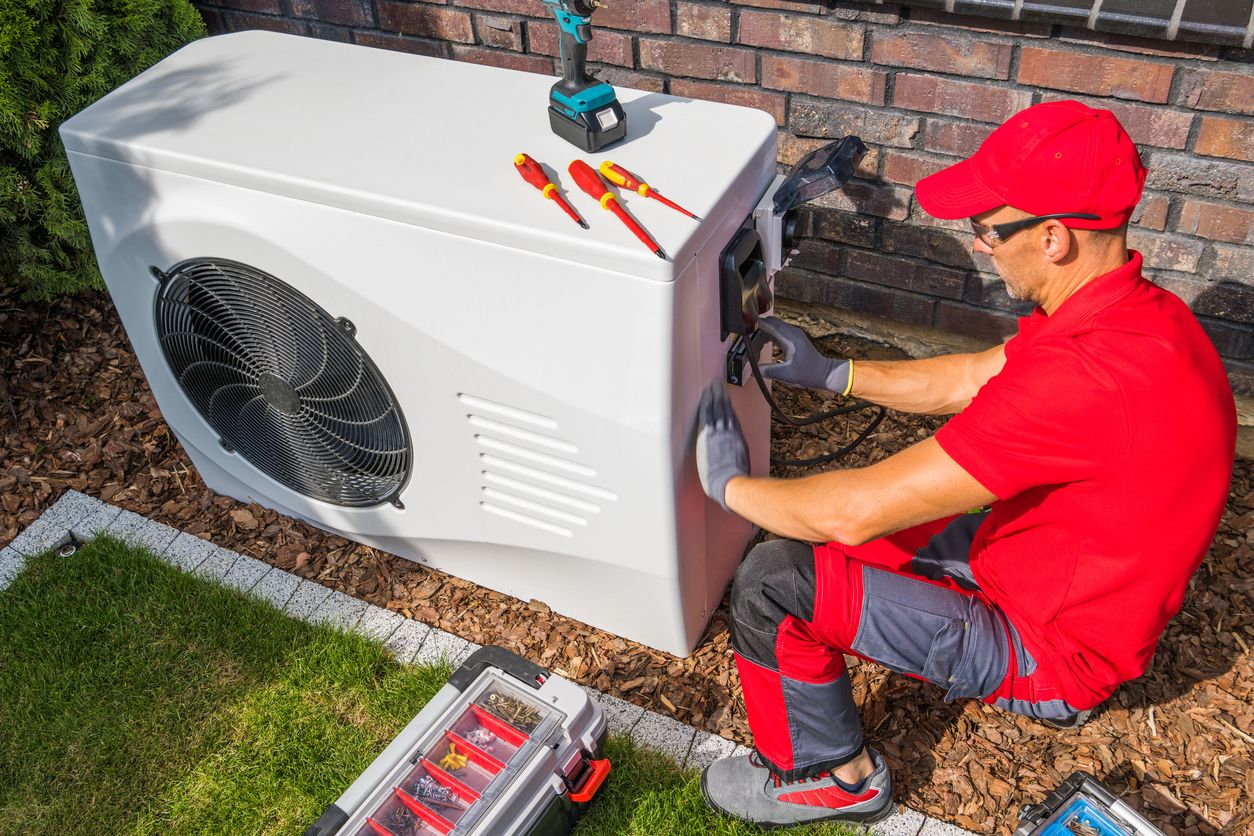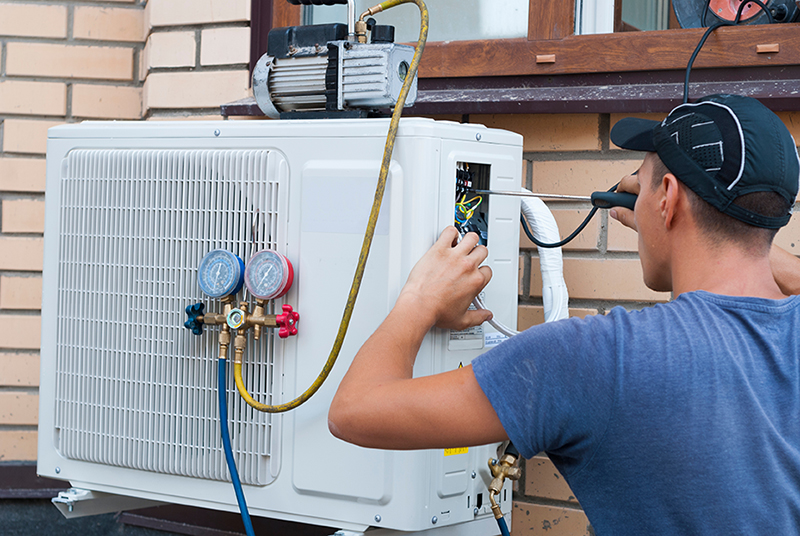Affordable Furnace Installation For Comfortable Homes In Local Communities
Your Overview to Choosing the Right HVAC System for Your Needs
Picking an appropriate heating and cooling system is an important choice that can dramatically influence convenience and power performance in your house. Numerous variables must be weighed, including the dimension of your house, neighborhood environment problems, and certain home heating or cooling down demands. Additionally, understanding the different sorts of systems readily available and their power rankings can assist assist your option. By examining these components meticulously, you can stay clear of typical mistakes. What essential considerations should you focus on to guarantee your financial investment fulfills both prompt and long-lasting needs?
Understanding A/c System Types
When picking an a/c system, it is necessary to understand the different kinds available to meet your specific needs. The main categories of cooling and heating systems include central air systems, ductless mini-split systems, heatpump, and furnace systems.
Air conditioning systems are developed to cool multiple areas utilizing ductwork to disperse conditioned air. They are optimal for bigger homes requiring consistent temperature level control. Ductless mini-split systems, on the other hand, provide adaptability and efficiency, as they enable zoning capabilities, allowing specific room temperature regulation without the requirement for ductwork.
Warm pumps run by moving warm instead than producing it, making them an energy-efficient choice for both home heating and air conditioning. Alternatively, heater systems utilize burning to produce heat, using either electrical energy, oil, or gas.
Each system has unique benefits and considerations, including setup needs, upkeep, and total prices. Comprehending these types will help homeowners make informed choices based upon their certain demands, climate, and budget constraints, ultimately ensuring optimum convenience and effectiveness.
Assessing Energy Performance
Power effectiveness is an important element in the selection of a HVAC system, as it straight affects both utility expenses and environmental sustainability. When reviewing energy efficiency, numerous metrics and scores can help lead your decision. The Seasonal Power Effectiveness Ratio (SEER) and the Heating Seasonal Efficiency Element (HSPF) are vital indications for air conditioning systems, representing their performance over a normal cooling and home heating season, respectively. Higher SEER and HSPF scores indicate much better energy performance, leading to minimized energy usage.
Furthermore, search for systems that have actually earned the ENERGY STAR tag. This certification represents that the tools meets strict energy effectiveness standards established by the united state Epa. Consider the system's variable-speed technology, which permits extra efficient procedure by changing the output to match need, additionally enhancing energy cost savings.
In addition, proper insulation and duct sealing can dramatically affect the system's overall effectiveness. In summary, choosing an energy-efficient cooling and heating system not only lowers your energy bills but additionally adds to a more sustainable environment, making it a vital consideration in your getting procedure.
Assessing System Dimension
Choosing the proper size for an a/c system is vital to making certain optimum efficiency and effectiveness. An undersized system may struggle to maintain wanted temperature levels, resulting in enhanced wear and tear, greater power usage, and reduced comfort. Conversely, an oversized system can bring about quick cycling, which not only creates ineffectiveness however also influences moisture control and air high quality.
To evaluate the perfect sizing, it is vital to carry out a tons calculation, which takes into consideration aspects such as the square video footage of the space, insulation degrees, window dimensions, and regional climate problems - air duct cleaning coquitlam. This estimation helps establish the British Thermal Systems (BTU) needed for heating & cooling. In addition, it is important to account for certain demands, such as the number of occupants and the visibility of heat-generating appliances

Installation Costs and Budget
An extensive understanding of installation costs is vital for services and house owners thinking about a new a/c system. The overall cost of installation can vary extensively based upon a number of elements, including the kind of system, the intricacy of setup, and the place of the residential or commercial property. Usually, installation prices can vary from $3,000 to $10,000, depending upon the system's size and get redirected here efficiency.
When budgeting for a cooling and heating system, it is critical to consider not only the preliminary setup costs yet likewise any added costs that may emerge, such as ductwork adjustments, electrical upgrades, or authorizations. Furthermore, it is advisable to get several quotes from licensed cooling and heating specialists to guarantee affordable prices.
Homeowners must also consider the potential lasting cost savings related to energy-efficient systems. While the in advance costs might be greater, energy-efficient designs can bring about considerable financial savings on utility expenses with time.

Upkeep and Long Life Factors To Consider

Appropriate upkeep consists of regular inspections, filter replacements, and cleaning of coils and air ducts (hvac). Overlooking these tasks can bring about decreased efficiency, raised energy expenses, and premature system failure. Property owners must additionally take into consideration the schedule of solution contracts, which typically supply scheduled upkeep and concern solution, making sure that the system continues to be in peak problem
Durability differs by system type; as an example, well-kept air conditioning systems can last 15 to 20 years, while heatpump may have a life expectancy of 10 to 15 years. Choosing a system with a strong credibility for reliability, along with spending in normal upkeep, can substantially improve the system's toughness. Furthermore, choosing for higher-efficiency models might cause long-term financial savings on power expenses, balancing the first financial investment gradually.
Final Thought
In final thought, picking an pop over here appropriate A/c system necessitates cautious factor to consider of various elements, consisting of system types, energy performance, and size. Eventually, an educated decision will improve convenience and effectiveness in residential environments while making best use of energy savings.
Choosing an ideal Heating and cooling system is a critical decision that can dramatically impact comfort and energy performance in your home.Power effectiveness is a crucial factor in the choice of a HVAC system, as it directly affects both energy prices and ecological sustainability. The Seasonal Energy Efficiency Ratio (SEER) and the Heating Seasonal Performance Element (HSPF) are crucial signs for air conditioning systems, representing their performance over a regular air conditioning and heating season, respectively. Selecting a system with a strong reputation for reliability, along with investing in normal upkeep, can dramatically boost the system's longevity.In verdict, picking an ideal Cooling and heating system demands careful consideration of various elements, including system types, energy effectiveness, and size.